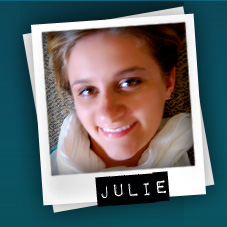For a split second, and I really mean a split second, I thought I was going to be an RA in the Regent Commons next year. For those of you who do not know what the Regent Commons is, it is the undergraduate/graduate student housing Regent provides to its on-campus students. The few moments I thought I was going to be an RA were exciting. Of course, they were followed by an unexpected afterthought of anxiety as I realized that for nine months I would be playing activity planner, hall-monitor, confidant and friend to about 15-20 girls. This requires a great deal of maturity; it is sort of like being a mom.
I thought a good way to begin being mature would be to ask the girls I knew what they would like to do for fun activities next year. A number of ideas came up – ugly sweater Christmas parties, weekly bible studies and door decorating parties. The list of fun things to do was endless. I had my list nearly complete and highly professional written in orange colored pencil on piece of paper I tore from a notebook when someone said to me, “It would be nice if you would do something to recognize good deeds, like give awards or gift certificates somewhere for people who do nice things for each other.” The same girl followed up with a comment suggesting that sometimes she felt like no one ever recognized her or saw her.
A part of my heart sunk to my intestines. No one should feel invisible, especially not at Regent where there are so many opportunities to be noticed. Another part of me, the cynical part, cynically thought, Isn’t this life? Meaning, we all have to try hard to engage and get noticed and yes sometimes it is hard. It is not an RA’s job to make sure everyone feels secure and plugged into their individual niche where they will be appreciated for who they are – that is like asking them to play God.
After this conversation I sulked back to my room. I knew the feeling the girl was talking about and I think a lot of people know how it feels to be invisible. It is hard to feel unique when everyone shops at SuperTarget and works in a state-of-the-art, grey cubicle. I have felt invisible before but never did I extend myself past my own self-centered bubble to realize that a lot of other people feel this way too. The invisible feeling is an isolating one; it makes you think no one feels the same way you do.
This week I was not invisible. I won an essay contest. I got to read my essay in front of 20-30 people in the Regent University library and then sit on a panel of professors to discuss the essay topic. Things like that make you feel like life is moving forward and the invisible feeling fades for a moment. No one person has stood by me as I have developed my writing talent as much as my mother. She knew me when I was a squirrely seventeen year-old emitting teenage emotion all over MySpace in blogs. She knew me when I had my first journalism course at college that I nearly dropped because my grades were so bad. She is there now, when my writing is beginning to develop into something good, something that I can use.
The morning I won the contest, she was the first person I called. On the phone she said, “Julie, you have a gift here, but no one said it would be easy.” The wise words were a little searing to my ears. No one did say it would be easy. Now I understand what that means. It means working day and night towards your goal, being secure in both failure and success. It means staying with things when there is no recognition for your efforts and learning to wait when you have done all you can and there is no indication that anyone will ever see you.
When I become a mother, I will tell my children that no one said life would be easy. If my split second as an RA would have lasted nine months, maybe I would have said this to some girls, not as their mother, but as someone who was trying to conjure up enough maturity to act like a mother. I am lucky I have a mother to say this to me. My mom is really good at what she does, if she wasn’t I would have quit writing a long time ago. Thank-goodness for mom, right?








